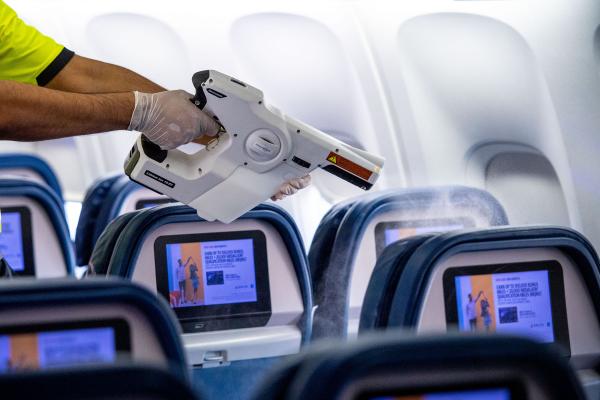Coronavirus has put the world on hold, especially the travel industry. Public health officials in many countries advise extreme caution about traveling to regions with a high number of Coronavirus cases.
Airlines are in a stage of fear about running out of business. So, what have airlines been doing to handle the effects of Coronavirus?
RECOMMENDED: Seven Healthy Tips For Traveling Well During Covid-19 virus
Here is a list of what airlines are doing to handle the effects of COVID 19:
1. More “Ghost Flights.”
Ghost flights are routes that take off, even though the aircraft it’s empty or near-empty seats. According to the European Commission (EU) policy, airlines must use their appropriate time slot, or they will begin to lose them. However, fuel and crew are costly.
As a result, the increase in ghost flights due to Coronavirus serves a significant problem for companies when tickets don’t sell.
2.Halt in inflight services.
The Coronavirus has caused airlines to step up their safety measures onboard. For instance, airlines are starting to limit their inflight services for passengers to protect the safety of their crew members.
For example, Cathay Pacific has modified its inflight services for flights to Mainland China by removing trolley services. Also, hot towels, pillows, blankets, magazines, and inflight duty-free sales have stopped.
Further, the interactions between crew members and passengers are limited. Therefore, this helps avoid the virus spread on board.
3. Airlines are dropping flight change fees.
Canceling travel plans you have been looking forward to is never a good feeling.
Airlines are being understanding with travelers by offering waivers for fees and fare differences for travelers. In most cases, this applies to people who booked or rescheduled their flights during a specific time frame.
Some examples of airlines dropping flight change fees:
American Airlines
To be eligible, the original travel is scheduled between March 1, 2020, and January 26, 2021. Moreover, changes to the flight must be made at least 14 days in advance of the departure date. You can read the details here.
Jet Blue
Jet Blue suspended change and cancellation fees for all flight bookings scheduled through April 30, 2020. However, in some cases, customers will need to pay for differences in airfare. Flights booked on or before March 10 are also permitted. Details can be found here.
Alaska Airline
Alaska Airlines incorporated a “peace of mind” waiver. Passengers who purchased an airplane ticket between February 27, 2020, to March 31, 2020, will be able to cancel or change their trips without any charge. Similarly, those who are scheduled to travel on March 31, 2020. Details on eligibility here.
In addition, Canadian airlines such as WestJet and Air Canada have web pages dedicated to Coronavirus.

4. Stricter cleaning procedures
Airlines are stepping up on cleaning procedures and communication with the help of medical professionals and health organizations. Tray tables, window shades, armrests, and other hard surfaces are intensely wiped down with a high-grade disinfectant.
Along with a multi-purpose cleaner after disinfection. An aircraft is taken out of service with a decontamination procedure when a passenger with Coronavirus was on board.
For example, Delta Air Lines has been “fogging” its aircraft with EPA-registered disinfectant that is used on all flights. Delta Air Lines said that the measure they are taking includes, “The new disinfectant fogging process, providing hand sanitizer and gloves for flight attendants and implementing enhanced sanitation procedures for catering equipment at international gateways.”
5. Providing Cabin Crew with Universal Protection Kits
The European Union Aviation Safety Agency (EASA) recommends that airlines equip their cabin crew members with universal protection kits. For example, the kit for SpiceJet contains protective clothing, wipes, disinfectants, and biohazard waste disposal products.
RECOMMENDED: A Thorough Examination: 8 Medical Clinics At Airports In North America (UPDATED 2020)
Despite all the efforts airlines are making, it would be smart for travelers to take precautions like wiping down their seats, use personal technology wherever possible rather than touching surfaces, and more. You can read our travel wellness tips during the outbreak here.
